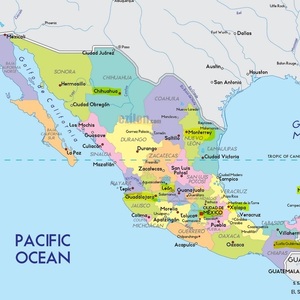ACE introduces fuel retailers to ethanol at forum in Mexico

April 11, 2019
BY American Coalition for Ethanol
This week, American Coalition for Ethanol Senior Vice President Ron Lamberty traveled to Tuxtla Gutiérrez, the capital and largest city of the southeast Mexico state of Chiapas. This trip marks his third time to the country this year to speak at ethanol technical information forums for Mexican petroleum equipment installers and retailers. The forums are a joint effort of the U.S. Grains Council and the Mexican Association of Service Station Suppliers (AMPES), to inform Mexican petroleum marketers about opportunities in sourcing, marketing, and retailing ethanol-blended gasoline, as Mexico’s transportation fuel sector evolves.
“Chiapas shares a border with Guatemala to the east, the northwest part of the state touches Mexico’s largest oil fields, and Tuxtla Gutiérrez is only a few hours from PEMEX’s headquarters. For all practical purposes, it’s oil country,” Lamberty said. “It’s also an area of amazing natural beauty, and we’re helping these marketers understand ethanol can help make gasoline cleaner and more friendly to their environment while also making it more affordable.”
Advertisement
“Mexico’s refineries operate far below capacity, and 70 percent of the fuel sold in the country is imported,” Lamberty added. “A new 600,000-barrel waterborne terminal directly north of Tuxtla Gutiérrez opened last year, and with so much of the nation’s fuel imported, we’re asking these marketers, ‘Why not import ethanol?’ And because this is an area built on oil revenue, we’re making it clear that it’s not ethanol versus gasoline, it’s ethanol to add octane, lower emissions, and bring down the cost of gasoline. We’re here to introduce them to ethanol and address any questions they may have about ethanol supply, logistics, blending, octane economics, and retail marketing and promotion.”
Lamberty has shared his experience as an ethanol splash blender and retailer at 10 events in Mexico since the fall of 2017, to set owners’ minds at ease with respect to adding ethanol blended fuel to locations using existing infrastructure. He has also demonstrated how marketers can make money as distributors of ethanol, something that has inspired the same entrepreneurial spirit exhibited by U.S. splash blenders back when ethanol was first being introduced in the nation. Fuel equipment companies in Mexico report increased interest from retailers and prospective wholesale distributors of ethanol since the workshop series began.
Advertisement
LAST MONTH, LAMBERTY RETURNED TO MONTERREY, MEXICO, AND IN FEBRUARY HE TRAVELED TO MÉRIDA. HIS 2018 TRAVELS TO MEXICO INCLUDED VISITS TO MEXICO CITY IN NOVEMBER, XALAPA IN AUGUST, CHIHUAHUA IN JULY, LEÓN IN JUNE, AND TWO WORKSHOPS IN THE SPRING TO MONTERREY AND TIJUANA. INTEREST AND ATTENDANCE INCREASE AT EACH EVENT, AND ACE WILL CONTINUE TO WORK WITH THE USGC TO PROVIDE INFORMATION TO RETAILERS AND OTHERS.
Related Stories
NREL announced the findings of the Assessment of BQ-9000 Biodiesel Properties for 2024, the eighth in a series of annual reports documenting the quality of biodiesel from U.S. and Canadian producers participating in the BQ-9000 program.
Kintetsu World Express Inc. has entered into a new agreement with Shell Aviation regarding the use of SAF. Under this agreement, KWE will adopt Shell Aviation's digital platform "Avelia" to swiftly address shippers' low-carbon transportation needs.
Aemetis Inc. released Q2 results, reporting increase revenue when compared to Q1. During an earnings call, company officials detailed progress with the company’s RNG, ethanol, biodiesel, SAF and carbon CCS projects.
Calumet Inc. on Aug. 8 confirmed its Montana Renewables biorefinery is currently running at full capacity. An initial phase of the company’s MaxSAF initiative remains on track to boost SAF capacity to up to 150 MMgy by mid-2026.
Marathon Petroleum Corp. on Aug. 5 released second quarter financial results, reporting improved EBITDA for its renewable diesel segment. The company primarily attributed the improvement to increased utilization and higher margins.
Upcoming Events










